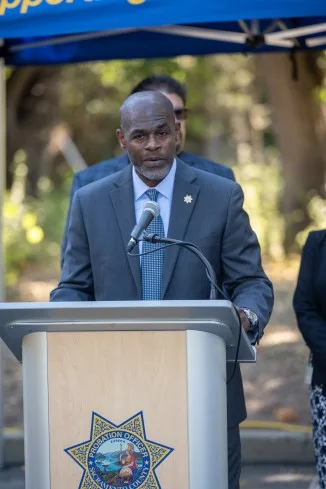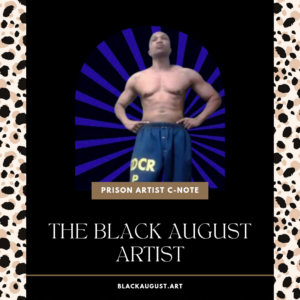By Genoa Barrow | OBSERVER Senior Staff Writer

The importance and impact of diversity in law enforcement is still debated across the country. Does having African American officers police African American neighborhoods make a difference? Can African American leaders clean up centuries of racist policies and bad behavior? Can a person truly be Black and blue at the same time and is one allegiance stronger than the other? Why are people called sellouts for wanting to effect change from within?
Sacramento has had just one Black police chief, Daniel Hahn. The current sheriff is also a county first, with Black former deputy and assemblymember Jim Cooper just elected to the position last year. Marlon Yarber represents another milestone for the region. The Stockton native serves as Sacramento County’s chief of probation. Only one other Black person has served in the role, that on an interim basis in the 1990s.
The OBSERVER recently had the opportunity to ask Yarber about his motivation for choosing a career that still has miles to go in repairing past and present breaches with the African American community. We also asked him about efforts to recruit more Black probation officers.
Q. As African Americans are disproportionately incarcerated, there are a lot of Black people on probation. Can you speak to that and how you got into probation?
A. That’s really my motivation, the reason I got into this field as a young person. When I’m introducing myself in big groups or a conference or something, I’ll say, “The thing that drove me was always trying to understand, how come there’s so many of us in the system. Why can’t we do more about that?”
In my family, there are as many of us on this side with the badge and the gun as there are on that side, who are maybe behind the bars and under supervision. My elders, if you will, that’s on the side with the badge and the gun, were like, ‘It’s easy to complain about the system, but it’s a much bigger thing to do something about it.’ So that became the motivating factor for me to get into the field. I haven’t really looked back from it, but really, all along the way trying to address disparities, trying to address equity, trying to ensure fairness with regards to justice.
Q. How long have you been chief?
A. I’ve been chief since October 2021. I’ve been with the department about 10 years prior to being named chief. I was assistant chief from the department over both our adult and juvenile services.
Q. Do you actively try to recruit more African Americans to work in probation?
A. Absolutely. Our workforce statistics are very good. I think we’re better than the demographics for the county, [it’s a] very diverse department. It’s an excellent job. I always tell young folks there’s no better way to give back to your community than to get involved in probation because we’re not just about accountability, but we’re about balancing that with opportunity.
If you want to connect folks who maybe are at a low point, to something that might change their trajectory in life, there’s no better place to do that than at probation.
Q. For many African Americans, low points have resulted in criminal records. Can that stop them from having careers in law enforcement?
A. Folks are always surprised when I say we’ve hired people with, as they say, “lived experience.” it’s not necessarily a barrier. It depends on timing and when things have occurred and what they are. There are some folks that work with us now, I can’t repeat or tell their stories, but as young people who’ve maybe touched the system themselves.
According to Sacramento County data, 16.28% of local probation officers are African American. For more on employment opportunities, visit saccoprobation.saccounty.gov.

Over the coming weeks, “Inside Out” will highlight the experiences of formerly incarcerated individuals and their families, look at efforts to improve local jail and prison facilities, and share the perspectives of Black correctional staffers and attorneys who work on change from within and activists who have dedicated their lives to shining a light on the inequities of the criminal justice system.





